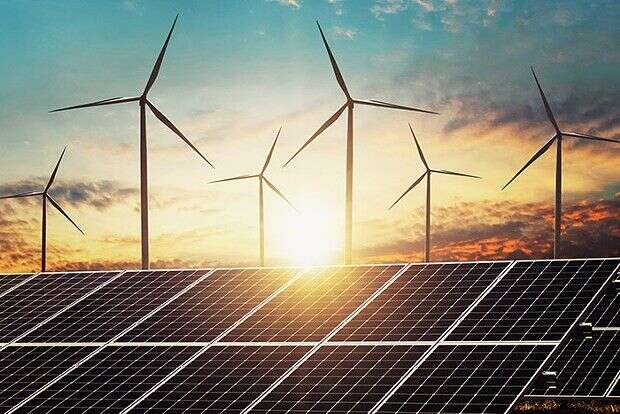China’s rapid expansion of renewable energy infrastructure has led to a significant overcapacity in recent years. As the global demand for clean energy solutions surges, this surplus presents a unique opportunity for developing countries, particularly in Africa.
With substantial investments in solar, wind, and hydroelectric power, China has become a global leader in renewable energy production. However, the domestic market has struggled to absorb the full output of these technologies, resulting in an oversupply.
This excess capacity could be harnessed to accelerate Africa’s transition to clean energy.By exporting surplus renewable energy technologies to Africa, China can provide access to affordable and efficient solutions.
This would enable African countries to diversify their energy mix, reduce reliance on fossil fuels, and lower electricity costs for consumers. Moreover, the transfer of these technologies can stimulate local economies by creating jobs and fostering new industries.
Beyond simply exporting equipment, there is a growing impetus to relocate parts of the renewable energy supply chain to Africa. This would not only reduce transportation costs but also create new manufacturing hubs and foster technological transfer.
By leveraging Africa’s abundant renewable resources, such as solar and wind power, in conjunction with Chinese manufacturing capabilities, the partnership could significantly lower carbon footprints and contribute to global sustainability goals.
Related topics:
Moreover, a strengthened energy partnership between China and Africa can enhance energy security for both regions. Diversifying energy sources and increasing local production capabilities can mitigate the risks associated with geopolitical instability and supply chain disruptions.
This is particularly important for Africa, which faces ongoing challenges in ensuring access to reliable and affordable energy.The potential for a transformative partnership between China and Africa extends beyond economic benefits.
It also presents an opportunity to reshape global power dynamics and reduce dependence on Western technologies. By empowering African countries to develop their own renewable energy solutions, China can foster a more equitable and sustainable global energy landscape.
While the potential benefits of this partnership are significant, it is essential to address potential challenges. Issues such as fair procurement practices, environmental impacts, and capacity building must be carefully considered. Transparent governance, community engagement, and knowledge transfer will be crucial to ensure a successful and mutually beneficial collaboration.
The partnership between China and Africa in the renewable energy sector offers a model for South-South cooperation. By working together, these developing countries can redefine their roles in the global economy and accelerate the transition to a sustainable future.
The potential benefits for both regions are immense, and the world stands to gain from this innovative approach to addressing global energy challenges.
















